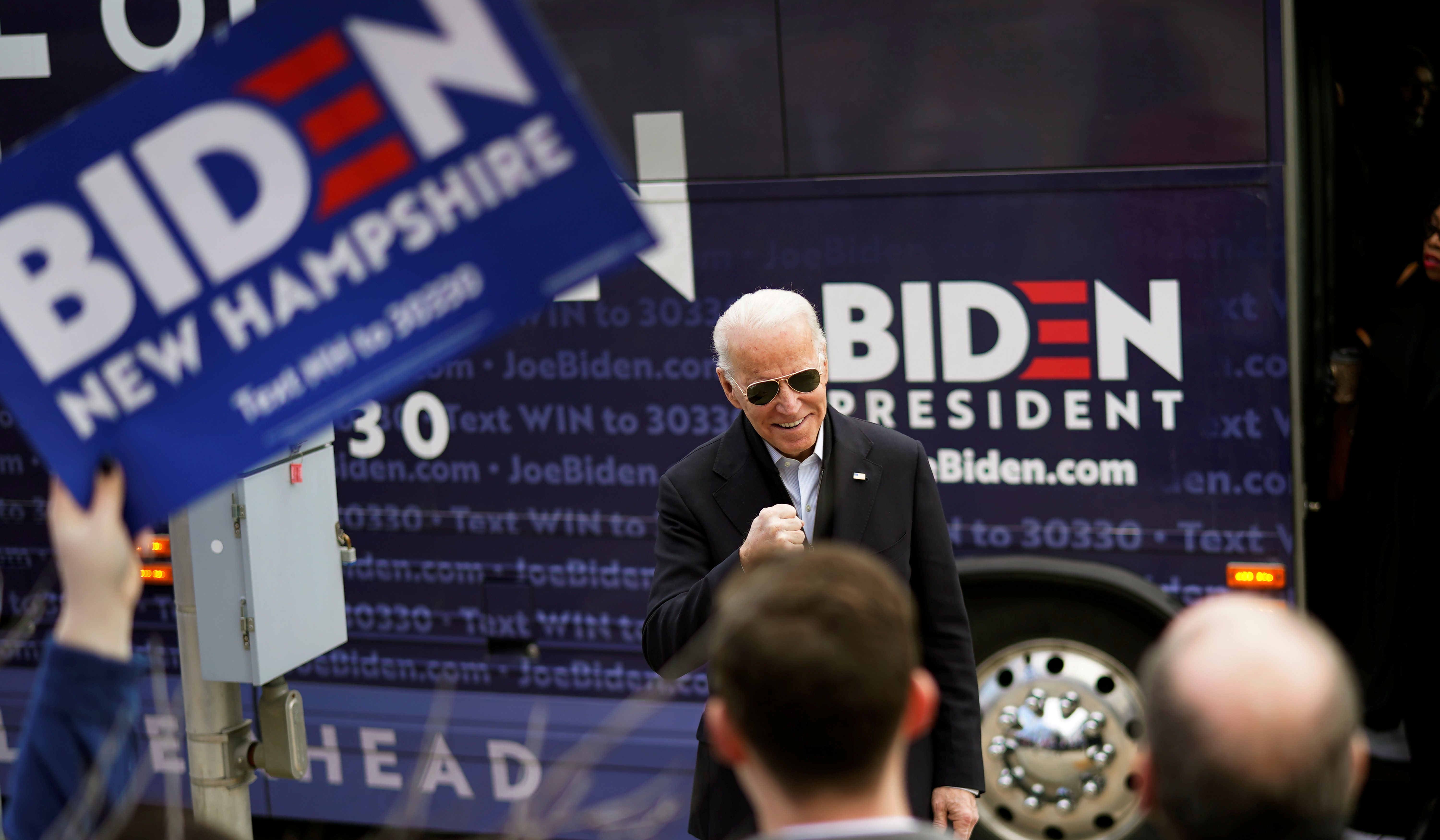February 10, 2020
Voters in New Hampshire head to the polls tomorrow to choose among the Democrats who hope to unseat Donald Trump in November. In the process, they may decide the fate of Joe Biden, the man many people once thought had the best chance of doing that.
Biden's case to voters: His role as Barack Obama's vice president, established political brand, decades of political experience, centrist reputation, and ability to speak authentically to working class voters in the midwestern states that were crucial for Trump's 2016 victory make him the best choice to beat Trump in 2020.
The first test of that case came last week in Iowa, a state where 31 of 99 counties had voted for Obama and then flipped to Trump. These were supposed to be the working class folks that Democrats needed to win back from the GOP. Surely Biden was the man for the job.
In reality, Biden won exactly one of those 31 counties. One. About two-thirds of them went to 37-year old Pete Buttigieg, a man whose political experience is limited to two terms as mayor of South Bend, Indiana. Another handful of counties went for Democratic Socialist Bernie Sanders.
Look more closely at those Iowa counties. Who would vote for Obama and then Trump? Maybe someone who rejects the entire political establishment in favor of something wholly new. The first African-American president, followed by a celebrity real estate tycoon who had never run for office.
This outsider's appeal is not just an American story these days. Consider the global backdrop for this election. Since Trump won in 2016, we've seen…
- France elect a president who'd never before run for office, and who created a brand new political party of his own just a year before the election.
- Germany make the far-right AfD the country's largest opposition bloc and the Greens the fastest-rising party on the left.
- Italy elect a protest group founded by a comedian and a former separatist party.
- Mexico elect a president leading a party he invented four years before the election.
- Brazil elect a formerly little known far-right lawmaker from a party that held a single seat in Congress.
- Ukraine reject the incumbent president and a former prime minister in favor of a guy who played the president on a TV show.
- And voters in Ireland last weekend break the century-long stranglehold of two centrist parties by awarding the most votes to a party with past links to a terrorist organization.
In a world where voters are rejecting the entire political establishment, Joe Biden has been in politics for 50 years.
Maybe New Hampshire voters will put him onto the path toward a political turnaround. Or maybe we should question what it means to be "electable" in 2020.
More For You
Global conflict was at a record high in 2025, will 2026 be more peaceful? Ian Bremmer talks with CNN’s Clarissa Ward and Comfort Ero of the International Crisis Group on the GZERO World Podcast.
Most Popular
Think you know what's going on around the world? Here's your chance to prove it.
Indian Prime Minister Narendra Modi isn’t necessarily known as the greatest friend of Muslim people, yet his own government is now seeking to build bridges with Afghanistan’s Islamist leaders, the Taliban.
French President Emmanuel Macron, German Chancellor Friedrich Merz, Ukrainian President Volodymyr Zelenskiy, U.S. Special Envoy Steve Witkoff and businessman Jared Kushner, along with NATO Secretary-General Mark Rutte and otherEuropean leaders, pose for a group photo at the Chancellery in Berlin, Germany, December 15, 2025.
Kay Nietfeld/Pool via REUTERS
The European Union just pulled off something that, a year ago, seemed politically impossible: it froze $247 billion in Russian central bank assets indefinitely, stripping the Kremlin of one of its most reliable pressure points.
© 2025 GZERO Media. All Rights Reserved | A Eurasia Group media company.
